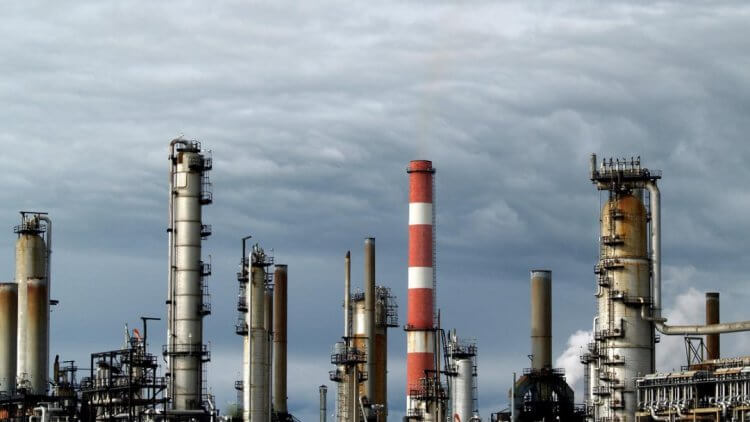While Nigeria has neglected her refineries over the years, Niger Republic, which begun commercial oil production in 2011, has begun exporting petroleu
While Nigeria has neglected her refineries over the years, Niger Republic, which begun commercial oil production in 2011, has begun exporting petroleum products to Nigeria.
This leaves Egypt and Algeria leading the African operations with 13 refineries at a combined capacity of 1.4 million barrels per day.
Data exclusively obtained from the African Refiners & Distributors Association (ARA) has shown that strong refinery performance in Niger meets local fuel demand, while its excess production is exported to Nigeria, Mali and Burkina Faso.
ARA also expressed concern over the importation of dirty fuel into Africa, predicting health and environmental challenges, unless refineries upgrade to meet Sustainable Development Goals (SDGs) and enable export of ‘white’ products.
Niger’s 20,000-barrel-per-day capacity refinery currently turns out 7% liquefied petroleum gas, 32% gasoline, and 61% diesel, to enable it to optimise stranded crude supply.
While Niger built its refineries in less than three years, pushing utilisation from zero to about 90 per cent in 2019; the turn around maintenance of refineries in Nigeria has been hampered by politics and corruption.
The Nigerian National Petroleum Corporation (NNPC) had claimed that Nigeria’s four refineries had combined capacity of 445,000 barrels per day.
These refineries has gulped more than N148 billion in the lastyear on processing less than 40,000 metric tons of crude oil.
But for Algeria, which comes third in terms of crude oil production in Africa after Nigeria and Angola with an output of about 1.1 million daily production, ARA, in a document presented by its Executive Secretary, Anibor Kragha, showed that five refineries had remained operational with a combined capacity of 623,000 BPD and a condensate splitter of 107,000 BPD.
Even as Nigeria faces deregulation policies with continual increase in pump prices of fuel,, Kragha revealed that eight refineries (with combined capacity of 782,000 bpd) and five processing plants had placed Egypt as Africa’s largest refining hub. Against the poor management of Nigerian own refineries, the refineries in Egypt are state oil as total national capacity utilisation stood at around 71 per cent in 2019.
While Africa’s SDGs encompass transitioning to cleaner fuels by upgrading refineries and infrastructure and driving industrialisation and innovation, Kragha stated that goals would remain elusive unless the continent maximised high-value products that address local and export markets.
The African Union had made move to adopt AFRI Clean Fuels Roadmap being championed by ARA to harmonise cleaner fuel specifications thereby reducing sulphur in fuels from about 150 ppm to 10 ppm by 2030.
While the Nigeria Natural Resource Charter (NNRC), in its Benchmark Exercise Report (BER), revealed that Nigeria had made N83 trillion from oil and gas in the last 37 years, over N10.7 trillion was spent on petrol subsidy between 2006 and 2019.
Decrying continuous dependency on importation amid dismal performance of refineries, industry players have insisted that Nigeria had no alternative than to rehabilitate its refineries.
They backed the move for the NNPC to revive the Port Harcourt Refinery, stating that it was the only solution, especially as its assets could become scraps should other private refineries come on board.
Former management staff at the NNPC, Diran Fawibe, noted the burden of subsidy and importation of fuels despite Nigeria’s leading position in crude oil production as shameful.
According to him, rehabilitating the refineries remained in the best interest of Nigeria, adding that the assets could be as good as scrap if other private come begin operation.
The mineral/energy resource economist and former president of the Nigerian Association for Energy Economists (NAEE), Wunmi Iledare, said the country had necessary human financial resources to make the oil sector work instead of depending on other countries.
“There is no alternative in my opinion to rehabilitation,” he said, stating, “Nigeria has what it takes to turn the sector around.”
According to him, there was a need to use capable hands in running the refineries.
Iledare added that, while the refineries remained NNPC assets, what the Corporation does with them must be an apolitical board decision.
He also stressed the need to overhaul the assets in a cost-effective manner before the refineries become “nothing but scrap.”
“I bet that if Dangote Refinery becomes operational before the revamp, those four refineries might become nothing more than the Nigeria Airways’ assets of old. God forbid and that is why NNPC is scrambling to do what needs to be done,” Iledare stated.
A former Director-General, West African Institute for Financial and Economic Management (WAIFEM), and professor of Economics and Public Policy, University of Uyo, Akpan Ekpo, had also told The Guardian that the nation’s refineries must be commercialised, stressing that the poor performance of the assets was a national disgrace and a setback to Nigeria’s development.
According to him, the Buhari administration must call for a deep discussion to ensure immediate blockage of all leakages coming from the facilities.
“So much money has gone into the refineries, and this has been a long-standing problem. The entire oil sector has to be revamped. The losses are real. So, we should commercialise all the refineries, as we cannot continue this way,” Ekpo said.
Chief Executive Officer, Mudiame International Limited, and Mudiame Welding Institute Limited, Sunny Eromosele, also argued that leaving the assets in private hands remained a viable solution for the refineries.
Eromosele, who noted that the lingering challenge was surmountable, added that keeping the assets in government’s care would limit the need to diversify the economy from oil. He alleged that NNPC’s perpetual interest in the refineries was an indication that the Corporation was using them to divert public funds into private pockets.
“We need to privatise the refineries. Those refineries are only a way of funnelling money into private pockets. We need to channel the money into economic diversification,” he said.
TheStreetJournal
